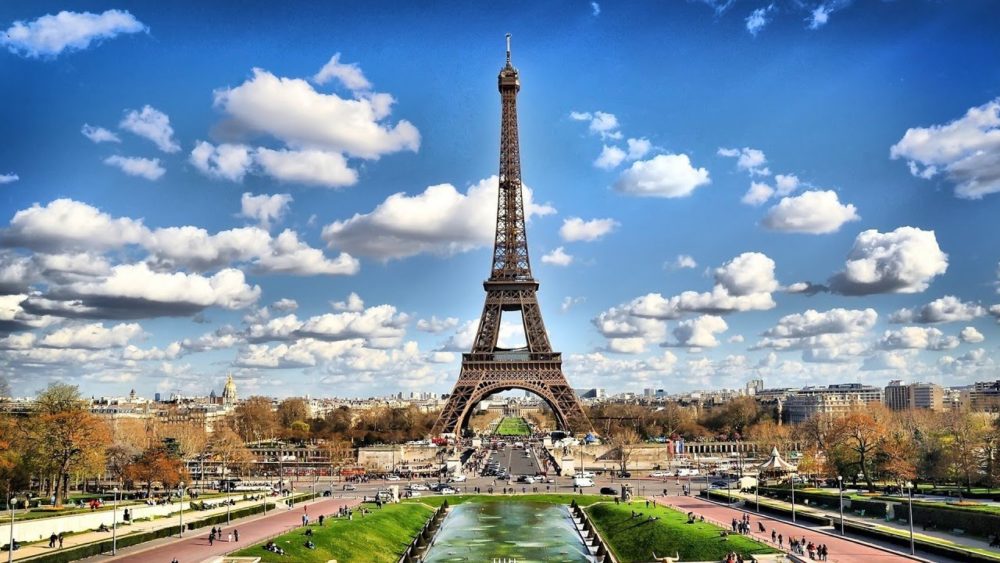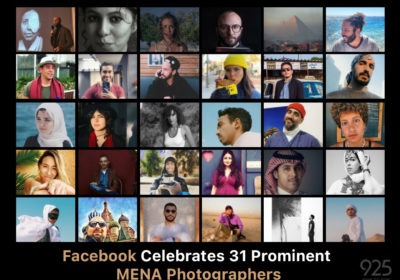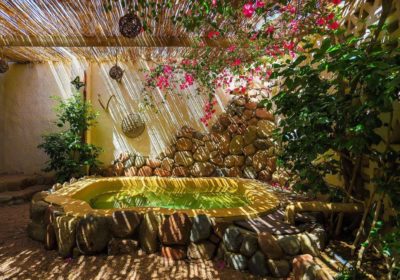The holy month of Ramadan showers us with its spiritual rituals, family gatherings, a million types of konafa and some of the year’s best meals. Other than being all of that, Ramadan in Egypt is often seen as an opportunity to work less, with office hours adapted to help us endure the tiring process of fasting and the sense of solidarity that could be felt in every household or office across the country, which makes fasting more enjoyable. However, that’s not the case for all Egyptians across the globe. Some have to withstand extreme temperatures, while some have to endure long fasting hours. In my case, I’m specifically talking about living in France.
Imagine walking to your usual bus stop or metro station everyday, walking by your neighborhood’s traditional French bakery, smelling the tasty delights mixed with the seductive smell of coffee. Or when you’re on your way back home, after a tiring day at the office, passing all the burger joints and crepe houses with their luxurious amounts of Nutella dripping all over their heavenly desserts. This is an everyday struggle for those fasting Ramadan in France.
As I am currently in Paris, I went around asking Egyptian employees about Ramadan here, and how they keep up with their jobs during the holy month, in an entirely different culture and work environment.
The Fasting Process
Usually daylight saving time is seen as an opportunity to extend the duration of the day, with an efficient and ecological use of every ray of sunshine that Earth is blessed to feel, reducing the use of unnecessary electricity. Try explaining that to a Muslim employee fasting during Ramadan. Finishing your sohour before 4 am and waiting an excruciating 18 hours to eat again for iftar is no easy task, and no one would deny the opportunity of fasting for an hour less.

Paris at 9:02 PM during Ramadan
The Working Hours
It’s hard to imagine having your iftar at 9:30 in the evening, it just doesn’t feel right. Well here, that’s your life for 30 days. You struggle to get by during your day at work, and even when you go back home, hoping to find solace at your place, you still have a couple of hours of starvation to kill. Speaking to Mohamed, a marketing engineer in a cloud gaming company, he stated:
“One of the biggest struggles here is the working hours. In Egypt, during Ramadan, working hours are reduced and adapted for this one month; however here, it’s just another month on the calendar, nothing changes.”
On the bright side, you get to immerse yourself in what you do, and you forget that you’re spending an extremely long time fasting (or so you try to convince yourself).
Explaining Ramadan
It goes without saying that most French people don’t know an awful lot about Ramadan, so explaining why you’re not eating from dawn till sunset may get a bit tricky. Heba, working in an innovation consulting firm shared her story:
“I started my job during Ramadan, so telling all my new coworkers that I’m abstaining from food and drink wasn’t the easiest thing to explain. Basic questions regarding the reason of fasting and its duration were occurring a lot. One time, after I told a coworker that I can eat after the sun sets, she said “hey, maybe we can close the curtains and you can eat freely”. So yeah, not very easy to explain.”
It’s also harder to maintain your level of concentration and performance throughout the day without food.
The Lunch Breaks
Hmm, how do I put this? Okay, lunch breaks in France are a cornerstone of your day to day life, not just as an employee but as a citizen. It is a duty, as well as a responsibility. It’s the shay b laban to our mornings. The crema to our konafa. The kabab to our kofta…you get my point. It’s not just a meal, it’s an opportunity to catch up with all your coworkers and spend a couple of hours outside the office. Menna, a marketing specialist in an IT solutions firm elaborates on this point:
“My coworkers thought it was a miracle that I’m surviving the day without coffee. But I didn’t want to be completely isolated from all of my coworkers, especially my friends from other departments, who I don’t see as often as the others. That’s why I decided to go with them every time. And when I explained why I wasn’t eating or drinking, it made the conversation much more interesting, with questions about Ramadan, Egypt and our culture in general. I’d take that any day rather than talking about the weather.”
You could of course take the break just to catch some fresh air or maybe take a nap so that you could survive your hectic day at the office.
The #RamadanVibes
Yes this hashtag is probably one of the biggest clichés of the month, but anyone here would rejoice if they felt the #RamadanVibes for just one day. There is absolutely no way of having a group sohour, unless you have some friends who live right next door. Nothing is open at 4 am, no public transportation; besides YOU’RE NOT THAT HUNGRY because you just ate a couple of hours ago. There are no annual work iftars, no after-work group iftar, no mosalsalat updates, no best konafa contest, no decorations, nothing. The vibe just isn’t there and that could bum you out a little. The sense of solidarity and having people within your circle going through the exact same thing could be seen as mundane and usual, but it’s something that you desperately lack here. If you go out for iftar in France, one hour after your meal, the restaurant is getting ready to close and call it a night, so the “there isn’t much time after iftar” argument is on a whole new level here.
Even whilst working at an international organization such as the UNESCO, Esraa found it hard to find someone sharing her same perception of Ramadan.
“Since we have a diverse group of employees, some of them are Arabs, but I don’t know, something always feels like it’s missing. I don’t always feel like we’re sharing the same Ramadan. It’s not like when you’re surrounded with your friends and family.”
What was also interesting was Joseph’s input, working as a financial analyst in a major insurance company.
“Even though I’m not a Muslim and I don’t go through all the struggles that others have to endure it’s quite obvious that Ramadan in Egypt is much more lively and different. I enjoy eating with my friends, having annual gatherings and weekend sohours. The atmosphere is entirely different, and here it’s much more difficult to enjoy these little things.”
The Blessings:
Sure, you’re without most of your friends and family; but that doesn’t stop you from appreciating the blessings that you witness during Ramadan in France. Here are some parts of the amazing stories I got to hear.
“Ramadan is an opportunity to properly represent Islam to my co-workers. It’s definitely challenging to maintain a high level of concentration and performance but I truly appreciate all the positive comments regarding my work during this month. It feels much more rewarding.” Heba
“I remember when my HR manager knew about Ramadan and that I was walking every day after work to the bus stop. After that, she insisted on driving me to the stop rather than letting me take the walk.” Menna
“I consider myself lucky because I’m in a very understanding team. Sometimes I can go a bit late to work, or leave early, and they would completely approve. One time, during a 3 PM meeting, I couldn’t concentrate and I felt very tired. Luckily I have an understanding manager, who stepped up and finished my task.” Mohamed
“At first I thought Ramadan here would be much more difficult, but days go by and somehow you manage to survive them all. Sometimes my team mates just swing by and ask if I’m okay or if I need anything. I think they’re just making sure I’m surviving, which is very sweet.” Esraa
Wherever you are while reading this, I hope you have an amazing Ramadan! And no, don’t eat that last basboussa piece, you’ve had enough.
Special thanks to (ADEEF), the wide network of young Egyptian employees and students, who made this task a lot easier.




























